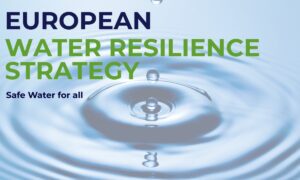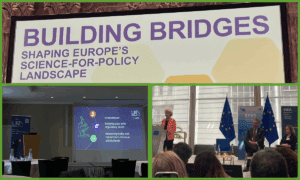Ivanova – who was a member of the European Court of Auditors – aims to follow Mariya Gabriel as research commissioner, who resigned in May to assist in forming a coalition government in her home country, Bulgaria.
The hearing started with Ivanova’s multilingual introduction speech, where she highlighted what she considers as priorities in the remaining time of her term. While calling the EU as a “scientific powerhouse”, she pointed to a “fragmented Research and Innovation landscape” as a challenge to overcome through, among other aspects, efficient dialogue with the European Parliament, and putting significant emphasis on synergies. She expressed her strong support for the Horizon Europe programme, which she called as a tool for Europe to become a “pioneer in research”. However, she highlighted that her goal is to ensure that Small and Medium Enterprises (SME-s) also benefit from Horizon, and innovation, and pleaded that she will focus on defending Horizon budgets.
She also listed simplifying scientific procedures, and advancing European University Alliances as priorities. After MEP Christian Ehler asked, during the Q&A session, to elaborate on the former, Ivanova explained that amongst other avenues, she aims to further develop Horizon’s lump sum funding structure to expand it to other pillars, and simplify cost options. In addition, Ehler commented that the Horizon budget debate with the council may be difficult. With regards to the latter, the European Universities Initiative, Ivanova responded to MEP Bilbao Barandica’s question on the initiative’s ambitions. She stated that achieving 60 alliances could create a “critical mass” to influence the EU’s research status. However, she highlighted that, despite the impressive current number of 50 alliances, there is room for improvement in the field of international recognition of diplomas, that relies on member state implementation. The responsibility of member states was also raised in response to MEP Nica’s question about widening countries. Ivanova called the widening initiative a success, citing Horizon participation statistics, but she called on widening states to implement relevant policies, and promised close collaboration between them and the EU.
Numerous other relevant topics, such as the European Degree Label, Horizon’s flexibility in crises and the Partnership for Research and Innovation in the Mediterranean Area (PRIMA), amongst others, were raised in the Q&A session of the hearing which can be watched in its entirety here. Overall, the parliament appeared to be content with the Commissioner-candidate’s performance, which external observers called a “safe play“.



